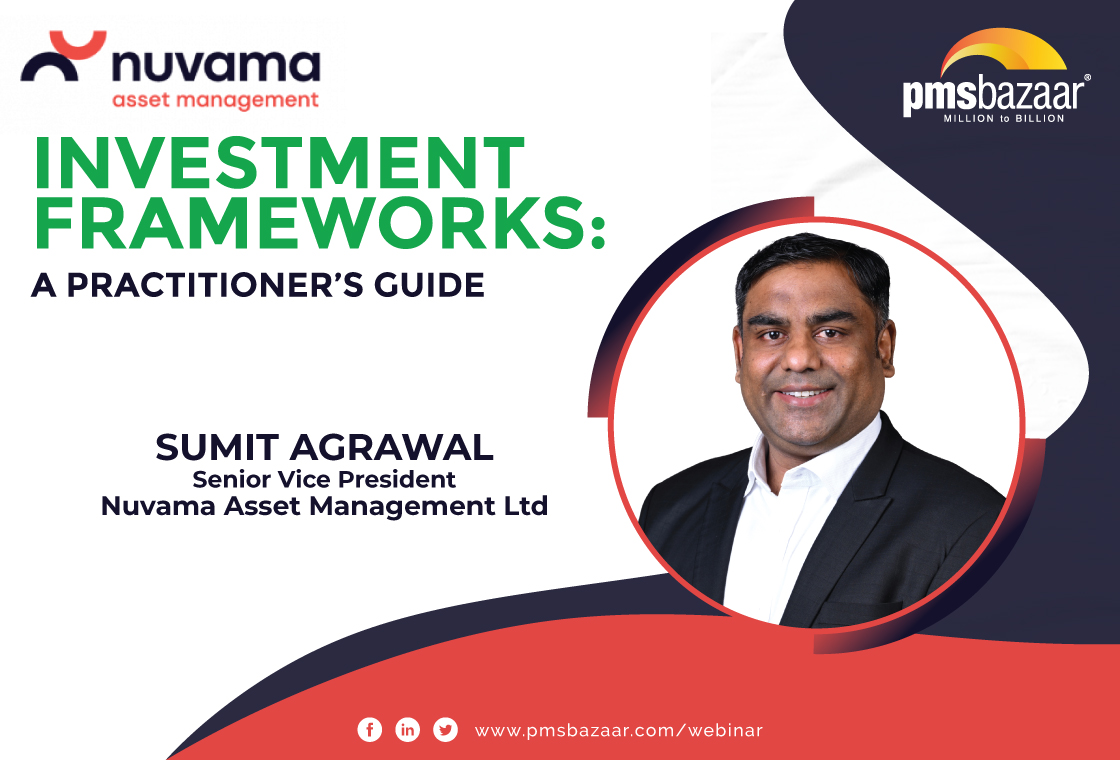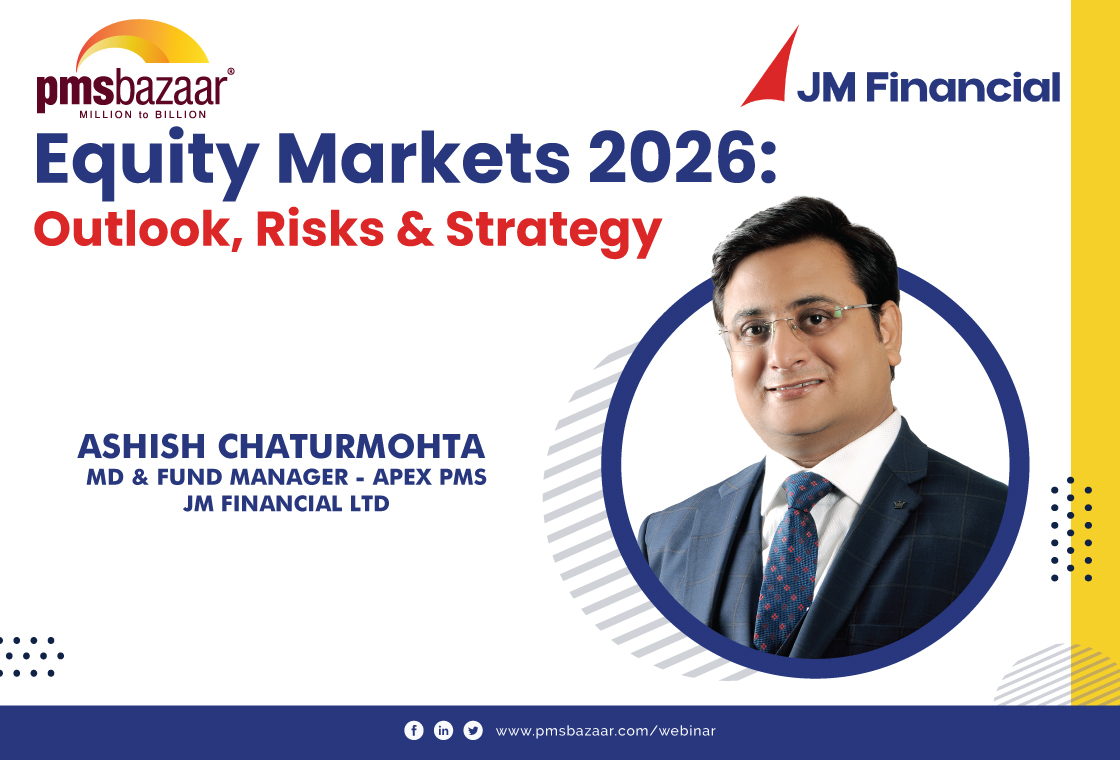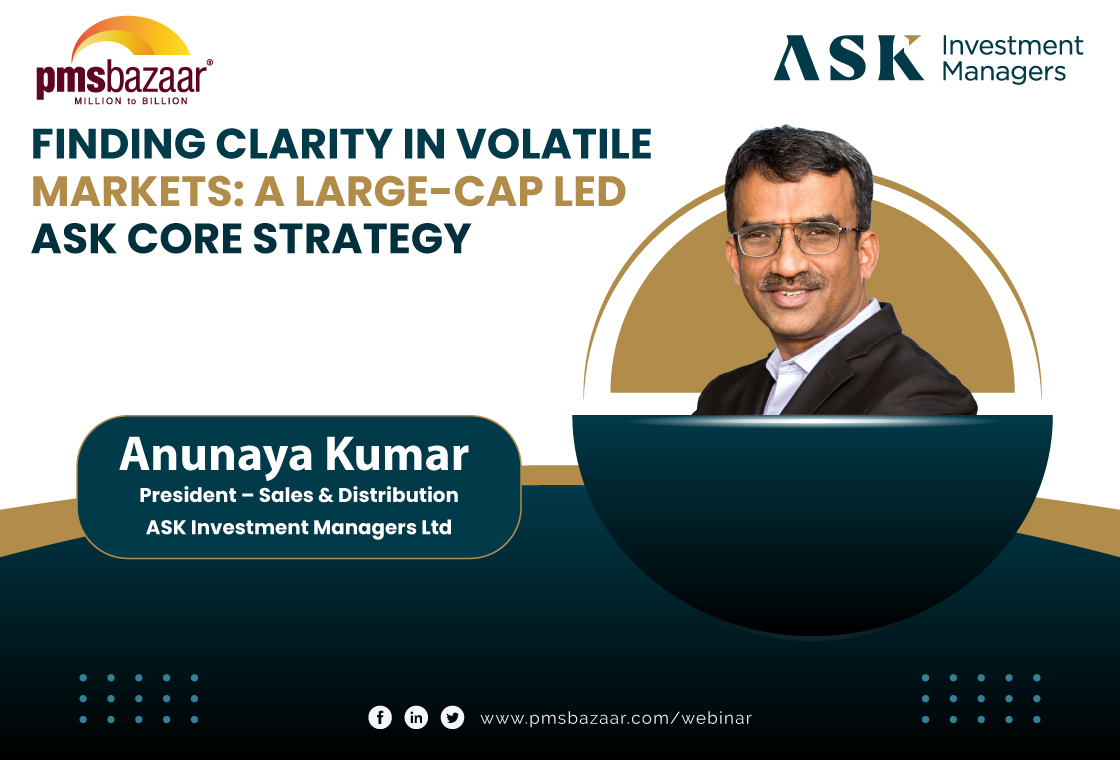If there is one thing that markets hate, it is uncertainty and with trade wars, political ructions, and mixed economic signals — not to mention a host of company-specific factors — it's tempting for investors to sit on the sidelines until the outlook becomes clearer. But, investors need to know how to invest through uncertain times and when and how soon uncertainty or the present market crisis will end. This webinar blog covers an interactive session with Mr. Samir Arora, in which he answered questions on topics related to Inflation, uncertainty in the Global markets, Recession, etc.

Here is an Excerpt from the Interaction:
Host: After the recent 75 bps increase by Fed, 75 bps has become the new 25 bps. With the Fed planning to continue to increase interest rates, do you think the FED is being hawkish in its assessment?
Mr. Samir Arora: They are definitely hawkish. In addition to being hawkish, they also speak in a hawkish manner and have for a long time. I think it was in February or March that I saw a video of Chairman Powell responding to a question about whether or not he would take "draconian steps" to control inflation. Instead of simply responding, "Yes, or No," he said, "Let history record that my answer is yes”.
The point is that the Federal Reserve keeps saying that we are focusing on inflation and will be taking Draconian measures. But the market feels the FED is too soft for that and they will back off in the end and never do such things. This for the FED is like a loss of credibility. So, there are chances that the FED probably will take draconian measures to control price instability or inflation. The FED conducted a three-day annual conference at Jackson Hole in Wyoming, with the focus on how much higher US interest rates might need to go and for how long if inflation does not significantly fall from its current 40-year highs. After the Chairman spoke about taking stringent measures, the market fell four percent that day. After that all the Governors, in particular, Neel Kashkari gave an interview saying that he was very happy that the market has taken cognizance of the speech, effectively signaling they want the US market to be down because if the market is not down effectively it is like saying that the financial system is not bold enough to take measures. Hence, yes, this time the FED is hawkish, and very hawkish and beyond.
Host: Since inflation is rising and has been for decades, the conflict in Russia is already causing immense human suffering and economic hardship. However, by achieving two percent inflation, the activities of the threat could soften the landing. How long do you think it will take the Fed to reach its landmark two percent inflation goal?
Samir Arora: I don't pre-empt whether they would reach 2 percent or not. In fact, FED itself is not saying that it will reach 2% before 2024. At a press meeting that took place after FED announced the rate increase, the Chairman was questioned on the targeted inflation rate. If you have watched the press conference that took place after the rates increase, the FED chairman told that as per his projection inflation would reach 2.1 percent. In addition, the Chairman also stated that while it is 2.1% percent, nobody is expecting to reach the target next year and that there is no soft landing. So, the catch here is, the FED itself is not saying inflation would reach two percent before 2024.
Previously in such a situation, the FED used to say that we are confident that the recession can be avoided because the labor market is strong. But now, the FED Chairman said in the press conference said that if it happens it is at the cost of doing business, which implies he was not even saying if a recession will happen or right now the focus is on inflation. Nevertheless, no one is easily reaching two percent immediately, but there is credible evidence that it is moving in that direction.
This means that the core inflation rate, which is currently around 6.3% or so, would go down to 5% or 4%, but I still believe that the US market won't decline the following year. In the past, you may have observed that there are calendar years when there is a recession, but the U.S. market did not decline. This is because if it had done so, the market would not have experienced a major rally this year and would have sunk by, say, 30%. Many equities would also have dropped by 60% to 70%. The markets would therefore still be favorable until the end of 2023, and there is a chance that inflation may reach about 2 percent by 2024.
Host: The new kind of investors have been confused about soft landing, mild recession, or deep deposition. Can you throw some light on this what is a soft landing and what is a hard landing and the mild recession and hard recession?
Samir Arora: According to me there has already been a recession in the United States, The term originally meant two-quarters of declining GDP growth. But, in the US, the National Bureau of Economic Research must call it a recession. So, I am not sure if the NBER has made mention of the US going through a recession. I suppose they haven’t termed it as a recession because they claim that there is no unemployment and that there is a wage increase.
Though even I am unsure of how they define a mild recession, I believe that it ends after two quarters and may just be a fraction of one percent at this point, meaning that it is considered to be mild. So, how do I know what is mild and what is a deep recession? For me, it is like a mass-market ball. A larger fall makes me believe it's a deep recession, whereas a smaller fall makes me believe there isn't one or it is a mild recession.
Host: If you notice, everyone is talking about decoupling, and that India will outperform the US by 17–18% in terms of performance. Are we actually decoupled based on performance over the past two months or the entire year? The long-term data suggests that we rhyme with the U.S markets.
Mr. Samir Arora: In fact, I don't believe there has ever been a year in my whole career as a fund manager where the markets have moved in such a stark opposite manner and where in India it is rising while the rest of the developed markets and the US are falling. But I still don't believe there is decoupling beyond the point. I think the US will stop falling, and as of now, nobody is thinking that the US is facing a global financial crisis. However, we don't need the US markets to go up to feel good. As long as it doesn't fall or only go down by three-five percent, it's okay.
In terms of dollars, the Indian market outperformed Warren Buffett, while Warren Buffett outperformed the American market by 0.9 percent. By 1.1 percent, Warren Buffett outperformed the American market. and by 1.1 percent, our index outperformed Warren Buffett. If anything, I think the US should not decrease as much and might perhaps increase by 5.7 percent. The US market may then increase the next year when rates are reduced. We are connected to the US, so if their prices rise, you are forced to raise prices in India whether you like it or not. If you don't want the value of the currency to be impacted, India or the RBI would have to hike interest rates by, say, 1% cumulatively if the US raises them by 0.75%.
While the above are excerpts from the interview, Mr. Samir Arora answered more such questions. To see the full interview and get more insights, please click the appended link.
Get access to rich data and analytics of PMS & AIF by subscribing to us. Join the 40000+ investors & experts now: Subscribe NOW
Recent Blogs

January Rout, Extreme Dispersion: PMS Returns Swing From Losses to Gains
Benchmark falls deepened losses, but multi-asset and debt cushioned portfolios meaningfully

Investment Frameworks : A Practitioner’s Guide
PMS Bazaar recently organized a webinar titled “Investment Frameworks: A Practitioner’s Guide,” which featured Mr. Sumit Agrawal, Senior Vice President, Nuvama Asset Management Limited. This blog covers the important points shared in this insightful webinar.

Aurum Multiplier Portfolio - Where Small and Mid-Cap Alpha Meets Large-Cap Stability
PMS Bazaar recently organized a webinar titled “Aurum Multiplier Portfolio - Where Small and Mid-Cap Alpha Meets Large-Cap Stability,” which featured Mr. Sandeep Daga, MD& CIO, Nine Rivers Capital and Mr. Kunal Sabnis, Portfolio Manager, Nine Rivers Capital. This blog covers the important points shared in this insightful webinar.

Flat Markets, Wide Outcomes: How 484 PMS Strategies Performed in Dec 2025
December 2025 was a month where market returns stayed close to flat, with the Nifty 50 TRI at -0.28% and the BSE 500 TRI at -0.24%.

Equity Markets 2026: Outlook, Risks and Strategy
PMS Bazaar recently organized a webinar titled “Equity Markets 2026: Outlook, Risks and Strategy,” which featured Mr. Ashish Chaturmohta, MD & Fund Manager – APEX PMS, JM Financial Limited. This blog covers the important points shared in this insightful webinar.

MICRO CAPS: The Dark Horses of the Indian Equity Market
PMS Bazaar recently organized a webinar titled “MICRO CAPS: The Dark Horses of the Indian Equity Market,” which featured Mr. Rishi Agarwal and Mr. Adheesh Kabra, both Co-Founders and Fund Managers, Aarth AIF. This blog covers the important points shared in this insightful webinar.

Finding Clarity in Volatile Markets: A Large-Cap Led ASK CORE Strategy
PMS Bazaar recently organized a webinar titled “Finding Clarity in Volatile Markets: A Large-Cap Led ASK CORE Strategy,” which featured Mr.Anunaya Kumar, President – Sales and Distribution ASK Investment Managers Limited. This blog covers the important points shared in this insightful webinar.
.jpg)
Passively Active Investing — A Modern Investor’s Lens on ETF-Based PMS
PMS Bazaar recently organized a webinar titled “Passively Active Investing — A Modern Investor’s Lens on ETF-Based PMS,” which featured Mr. Karan Bhatia, Co-Founder and Co-Fund Manager , Pricebridge Honeycomb ETF PMs. This blog covers the important points shared in this insightful webinar.

